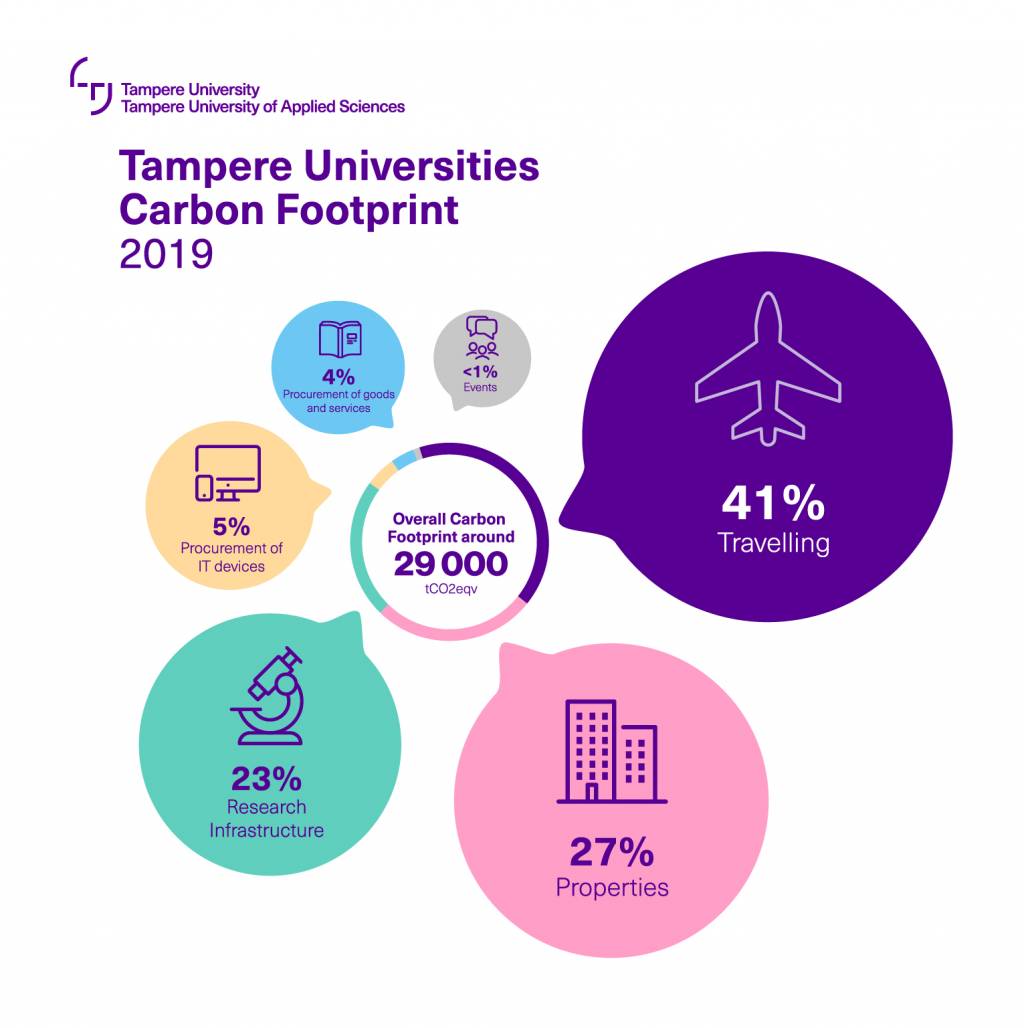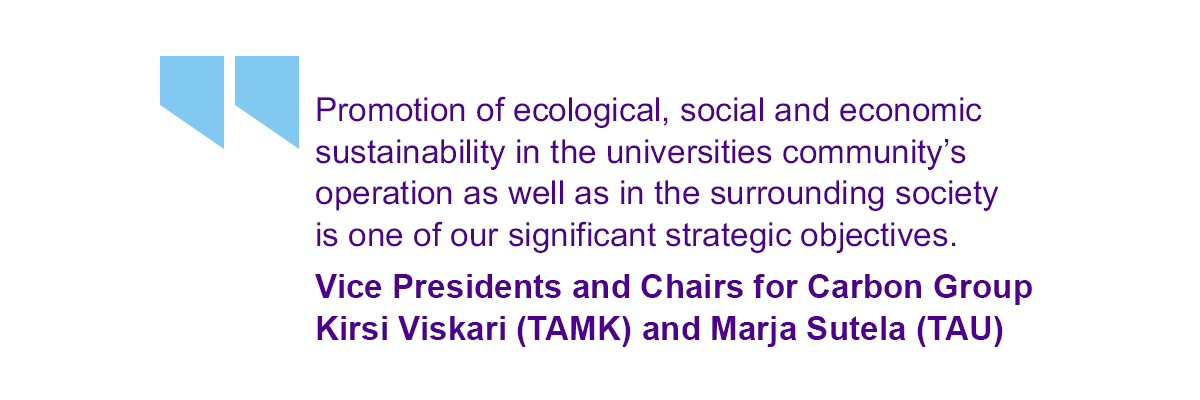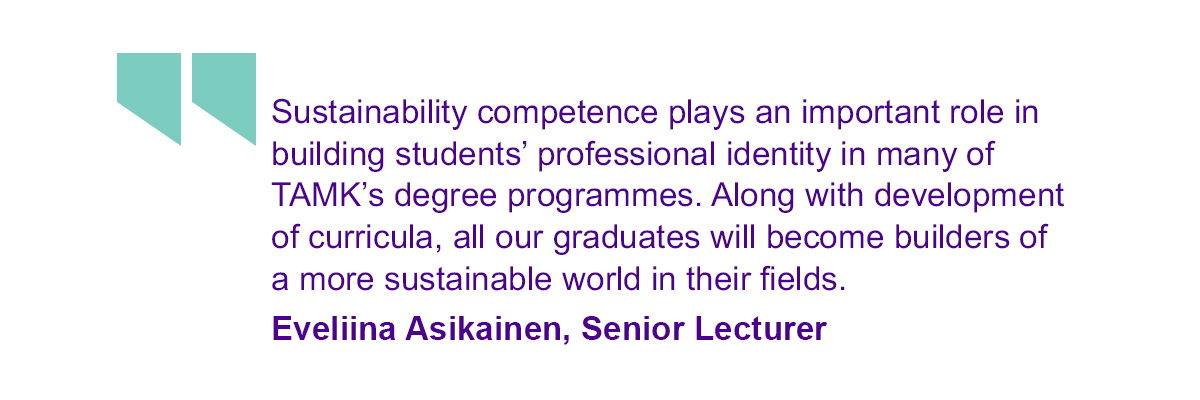Sustainably towards carbon neutrality

Along with TAMK’s new strategy, sustainable development became a key theme in the RDI process, development of curricula as well as other operations. In 2020, the Tampere Universities community’s cooperation became closer and developed significantly.

The universities community calculated the carbon footprint of its emissions in 2019 in accordance with the Ministry of Education and Culture’s guidelines. The calculation was made by a multidisciplinary working group with representatives from both Tampere University and Tampere University of Applied Sciences. The universities community’s estimated greenhouse gas emissions or total carbon footprint was 29,000 tCO2eq (tons of carbon dioxide equivalent). The proportion of Tampere University of Applied Sciences was approximately 4,000 tCO2eq.
A concrete environmental deed was district cooling, which was introduced in some buildings on TAMK Kuntokatu campus. The cooling comes from Lake Näsijärvi and is produced by Tampereen Energia. It was an environmental investment which lowers the carbon footprint of our facilities.
The universities community aims at carbon neutrality by 2030 and prepared measures to reduce its carbon footprint already in 2021. The sustainable development theme is highlighted on the universities community’s website. Community members are involved through for example surveys.
Willingness to promote sustainable development
Tampere University of Applied Sciences was the first Finnish university of applied sciences and third Finnish higher education institution to sign an international sustainable development commitment called SDG Accord in October 2020. The Finnish Aalto University and LUT University had made the commitment earlier. SDG Accord is higher education institutions’ international commitment and expression of will to promote achievement of sustainable development objectives. The higher education institutions report on their measures annually.
TAMK worked actively in the Rectors’ Conference of Finnish Universities of Applied Sciences’ working group which prepared a sustainable development and responsibility programme for universities of applied sciences.
Strengthening of sustainability competence is an important viewpoint in TAMK’s curriculum process. The curriculum work aims at offering all TAMK graduates abilities in promoting sustainable development in their professional life and taking working life comprehensively towards a more sustainable direction.

Events and deeds
The pandemic also had an effect on sustainable development events. TAMK’s third International Forum on CSR (Sustainability and Circular Economy) took place virtually in November together with our Dutch and Spanish partner institutions, The Hague University of Applied Sciences and Francisco de Vitoria University. The forum had well-known speakers, such as Kari Herlevi, who leads Sitra’s Circular Economy focus area, and Aalto University’s Sustainability Manager Meri Löyttyniemi. The event was organised by TAMK’s International Services and schools. The event had about 70 participants from TAMK’s international networks.
TAMK’s circular economy award of 2020 was given to Campusravita restaurant for starting takeaway sale of its leftover food on the main campus. The winner was chosen by TAMK Circular & Bioeconomy Actions research group. The grounds for the choice were reduction of food waste and organic waste with an easy solution, which serves customers equally and supports the company’s profitability objectives.
Text: Eeva-Liisa Viskari, Impact Area Leader & Eveliina Asikainen, Senior Lecturer. Editing: TAMK Communications Services
Read more about sustainable development at TAMK and Tampere Universities
Tampere Universities pledge to become carbon neutral by 2030
Tampere Universities calculated their carbon footprint
Sustainable development commitment, SDG Accord
Sustainable development on Tampere Universities’ website
